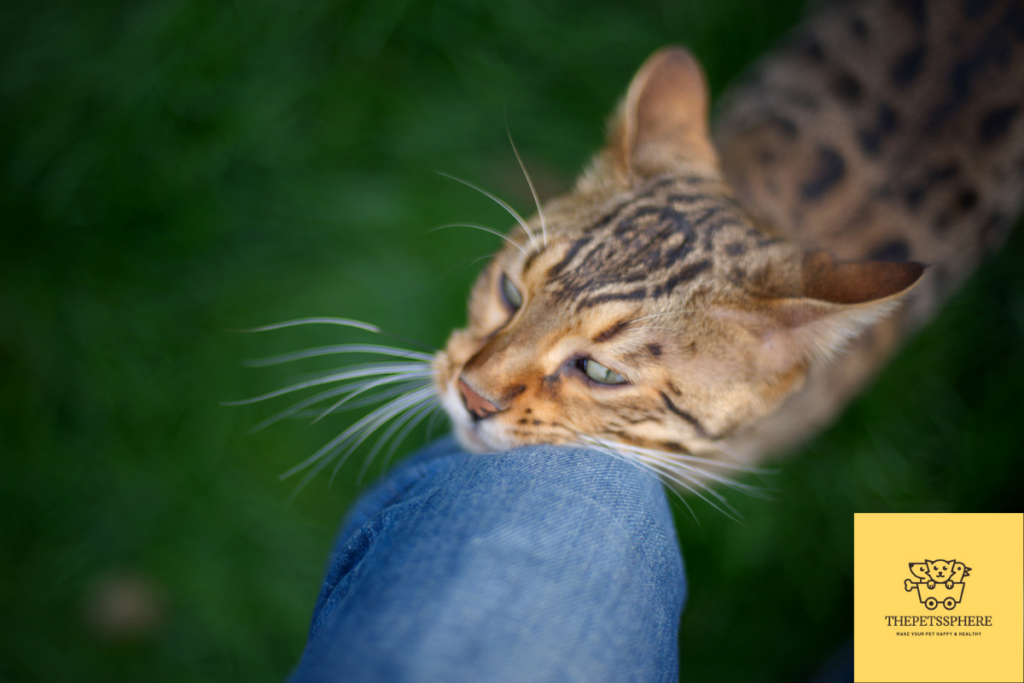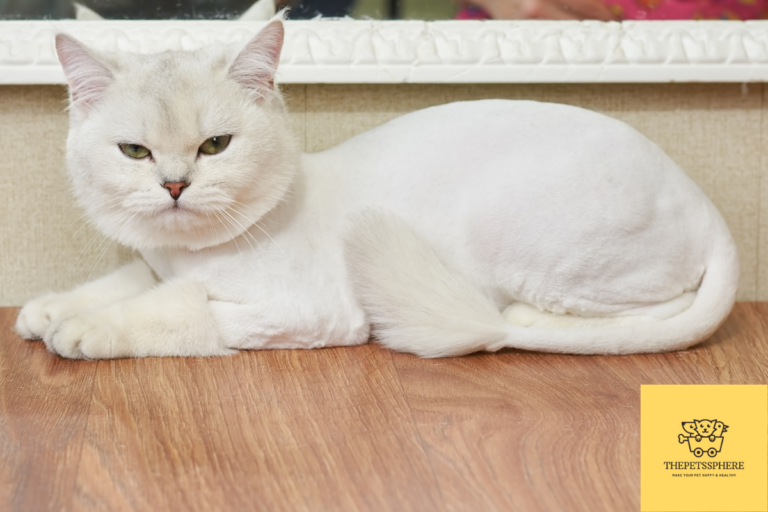Cats are notoriously difficult animals to understand. They are independent, moody and can be a bit of an enigma at times. We love them anyway because they make us feel loved when they choose to spend time with us. However, cats are actually social animals who crave attention from their human owners! Cats may hate singing in particular because they are shy or scared. It’s important to understand what your cat likes in order to better understand them!
This article discusses why cats hate singing and what the potential reasons behind it could be!

6 Reasons Behind Why Do Cats Hate Singing
1) Shyness
Cats often hide when there is a lot going on around them so this could be one reason why they don’t like being sung too loudly near them.
2) Scaredy Cat Syndrome
Some cats can be very scared of new things and noise which would make them not like being sung too loudly near them.
Maybe The sound is too high pitched for their ears.
3) Trying To Tell Us Something
They’re trying to tell us something else is going on with them and we should be listening closer instead of singing a silly song (e.g., she’s in heat).
4) Makes Them Super Anxious
Maybe Our song makes them super anxious because it triggers a negative memory.
Some people say that cats can sense our emotions and it’s possible that they find the song we’re singing to them too annoying.
Maybe They don’t like how off-key we are!
5) Remainder of some bad things
Singing may remind them of something bad that happened in their life before they became domesticated (such as being trapped at an animal shelter).
6) Cat’s Don’t Like to watch our Lips Move
Cats will naturally look at anything moving around in front of them because they’re predators and their prey moves so they need to stay alert for it.
The sound coming from your mouth can also distract them or make them feel threatened by our words which may come across as aggressive.
It could also be an indication that something is wrong with their vision or that they’re suffering from a neurological condition.
Why Does My Cat Bite Me When Singing?
Most cat owners have been bitten by their cats at some point in time. It is not the best feeling, but it is something that you learn to live with. However, when your cat bites you while singing or talking to them, it can feel like a new level of craziness.
That’s because they are most likely trying to tell you something!
Cats use body language and facial expressions to communicate what they want from us humans-including attention and affection-and this includes biting too.
So if your furry friend has been chewing on your fingers lately then he or she might just be asking for more love and attention from you.
Another reason could be they may be reacting to high-pitched noises, which can cause your kitty discomfort or pain.

What Type Of Music Do Cats Like?
Do you know what type of music cats like?
Cats are animals that love to listen to the sounds of birds, leaves rustling in the wind, and other soothing noises.
They also enjoy playing with water or watching their owners make funny faces. But do they have a favorite genre of music?
We all know how important music is for our moods. Studies show that listening to soothing background noise can help us relax and sleep better at night as well as boost our productivity during the day. For some people, it’s just too difficult to get through a workday without listening to their favorite tunes on YouTube or Spotify on repeat- for others, it’s relaxing jazz or classical pieces. But why would these same songs not work for your cat?
It’s true that some cats don’t seem to care much about the sound of music, but there is a chance they’re just too distracted by something in their environment and haven’t really given it any thought. If you notice your kitty seems content while listening to one type of song over another then let them choose what genre they want! Here are some examples:
- Classical: Mozart or Beethoven
- Jazz: George Gershwin or Miles Davis
- Nature Sounds: Gentle waterfalls, waves crashing on the shoreline, rustling leaves blowing in the wind (these can be found on services like Pandora)
Cats have very sensitive hearing so if you’re going to play music for them, it’s best to use speakers instead of earphones.
Cats can also become extremely terrified if they hear high-pitched noises that are similar to the sounds made by hawks and other predators. So make sure your playlist features soothing songs with no sudden changes in volume or a surprise pop song coming on out of nowhere!
If you notice your cat is really enjoying what he or she is listening too then why not give him his own Bluetooth speaker?
Also remember that cats have different interests than humans; just because something isn’t pleasing our ears doesn’t mean they will find it unenjoyable as well. It may take some time before a certain type of music wins their heart, but with patience and a little bit of trial-and-error you’ll find something your cat will enjoy!
Do Cats Like Classical Music?
If you’re a cat owner, chances are your furry friend has probably had an unfortunate run-in with the vacuum cleaner.
Cats love to play and explore, but they can’t resist scratching furniture and plants- which means disaster for household items like carpets, curtains, yarn or anything else they find interesting.
The good news is that there’s a way to keep them out of trouble: classical music!
Researchers have found that cats prefer listening to “slow movements” of Mozart over other types of music because it calms their brain activity.
If you want to try this at home then just put on some soft background music- we recommend Bach’s Cello Suite #1 in G Major.
Why Does My Cat Come to Me When I Sing?
Cats are known for being independent creatures but they also have their moments of cuddling up to you and purring.
For some cats, these moments happen when they’re eating or playing with toys.
But what about when a cat comes running to you when you sing?
The possible reason is maybe your kitty is coming over for attention while you’re singing as he/she enjoys hearing his owner’s voice. It could also be because he wants something from you like food or attention- so don’t forget to give him those things too! If there seems to be an underlying issue here then it’s worth consulting a veterinarian to see why your cat is behaving this way and what you can do about it.
Do Cats Understand Singing?
Have you ever tried to sing for your cat?
We know that many people do, and it seems like the cats always have a response. They start purring or lay down next to you.
But what if they don’t respond? Do they understand that we are singing because of their reaction when we do it?
It can be hard for us humans to say. Most cats seem to enjoy being sung or spoken to in some way (or even just hearing human voices), there’s no real evidence of comprehension.
Cats do not understand what humans are actually trying to communicate.
Sometimes they communicate through a song because they have no concept of the melodic elements that combine together to make up what we call “Music” for human beings.
Most cats will simply use their ears as another means of gauging whether someone is present in their territory by attempting to identify any specific sounds produced by distinct body movements or voices, and can tell if it’s likely that there’s an intruder nearby.
Ascending melodic lines like ascending scalar passages on the piano, for example, seem to attract cats most strongly.
Do Cats Like Human Singing?
Is your cat staring and meowing at you? Do they seem agitated? Is the music you are playing on repeat driving them nuts?
Singing for your cat might not be a great idea. Cats, especially kittens, don’t like human singing because it’s too high pitched or loud. If you want to engage with your feline friend, try something else that they enjoy like bird songs or string instruments.
Some cats will sing along with you while others may just walk away from the noise that is being made.

Why Does My Cat Rub Against Me While Singing?
Cats are known for their love of attention and rubbing against humans is a way to get it.
This behavior can be annoying, but there’s actually a scientific reason behind why your cat rubs against you while singing!
Cats purr when they’re happy or content, and the vibration from the purring sends signals to your brain that make you feel good.
They may be trying to tell you that they want something or that they love how soft your clothes feel on their fur.
It could also mean that they’re scared and seeking comfort from a human friend because animals can sense fear in humans too!
So next time kitty starts rubbing up on you , think about how much he loves/she and trusts his favorite human you!
Final Thoughts
Cats are very curious creatures. The more you know about their habits, the better able you will be to understand your cat’s behavior and make them happier.
If singing doesn’t work for your furry friend or they enjoy it only sometimes, try playing some of their favorite music using instruments that don’t require a human voice in order to see if this makes a difference.
Keep calm when trying out different styles of songs because cats can sense tension which may cause them stress as well.
Be consistent with what type of song you play so your feline friend knows what’s coming next- even if he might not like it at first!
Some people find success by incorporating softer songs into their repertoire; these tend to have instrumental pieces rather than lyrics.
Related FAQS
- When do male cats stop growing
- How long can a cat go without peeing before it is dangerous
- Where do cats hide their kittens inside
- How to shave a long haired matted cat
- Keep cat safe during blizzard
- Are cats ticklish on their back
- Why does my cat lick my dogs bum
- What food smells make cats gag
- Why does my cat like to play in litter box
- Does cats watch tv
- Why do cats arch their backs and run sideways
- Why do cats like open windows
- How to stop my cat from opening folding doors
- Is it possible for cats to have ADHD
- Why do cats cry like babies sometimes
- Why do cats lick their blankets

